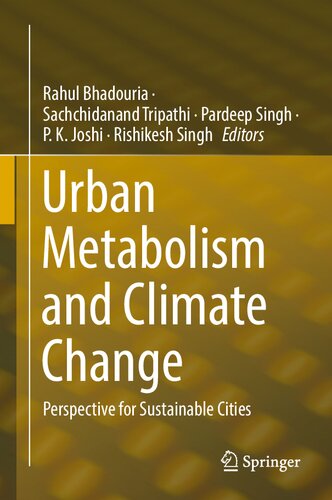
Urban Metabolism and Climate Change: Perspective for Sustainable Cities PDF
362 Pages·2023·10.694 MB·English
Most books are stored in the elastic cloud where traffic is expensive. For this reason, we have a limit on daily download.
Preview Urban Metabolism and Climate Change: Perspective for Sustainable Cities
Description:
This book provides a basic understanding and state-of-the-art of urban metabolism. Urban centres are increasingly challenged by population increase and the resultant environmental concerns including the urban sprawl and climate change. Different patterns of urbanization contribute to the changing climate via. differences in their urban metabolism represented by energy and matter. Urban metabolic studies in terms of energy and material inflows, outflows, and stocks can be associated with traditional evaluation techniques to help assess the magnitude and potential effects of variety of environmental challenges the world is facing today. Urban centres are critical real time observatories that indicate the impact anthropogenic activities have on global biogeochemical cycles. Urban processes have significant and lasting impacts on the global carbon budget. The technological and infrastructural advancements have fuelled an increase in urban inputs and outputs of material and energy. Therefore, more sustainable approaches need to be adopted in changing scenarios for urban planning, particularly for sustainable resource utilization and better waste management practices. The book emphasises on the sustainability in urban metabolism, sustainable urban planning, ecosystem services, and disaster resilience to provide an interdisciplinary understanding of urban metabolism. The book also identifies an urgent need to develop new methodological approaches for real time and reliable evaluation of urban metabolism.
See more
The list of books you might like
Most books are stored in the elastic cloud where traffic is expensive. For this reason, we have a limit on daily download.
